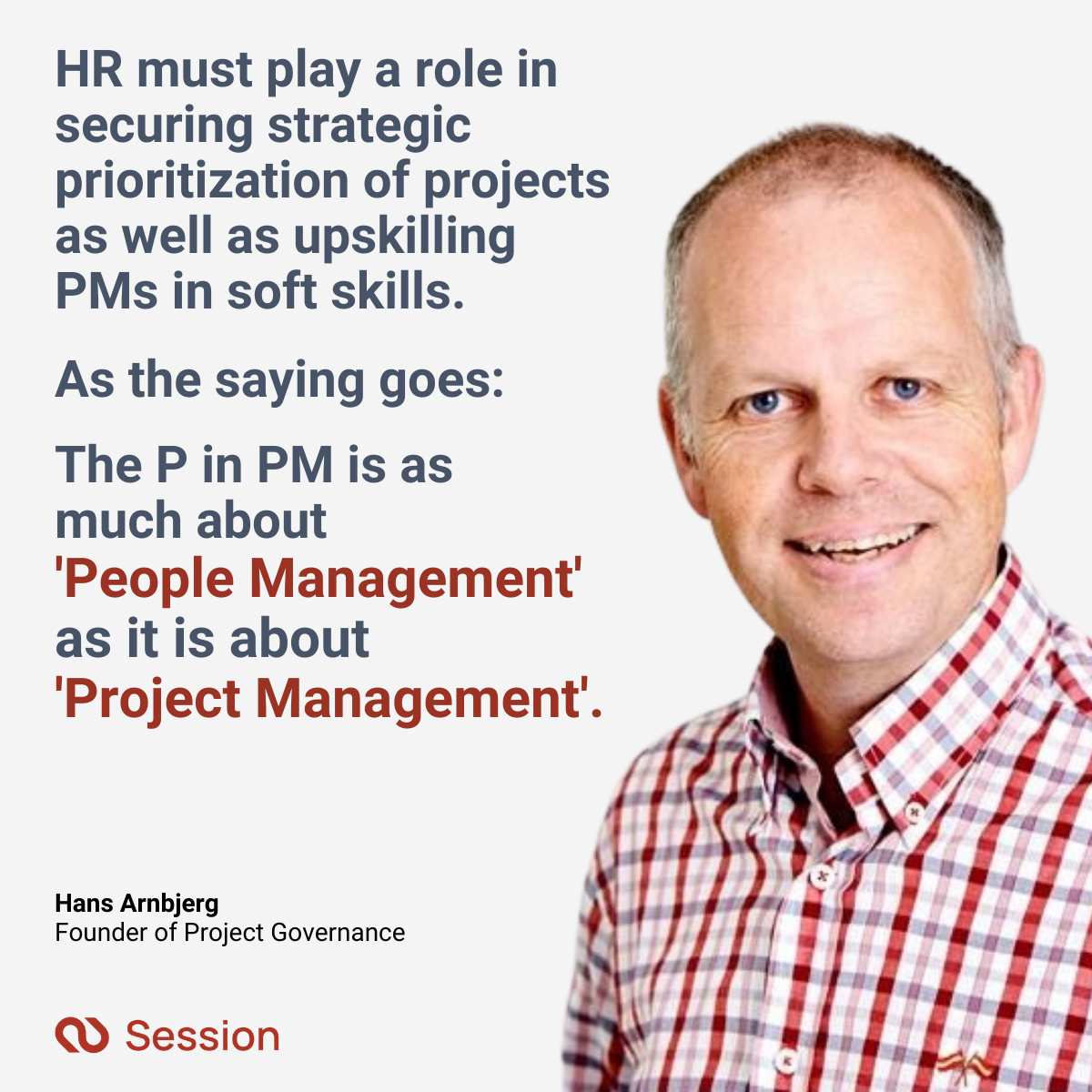When project delays and budget overruns creep in and annoyed customers leave complaints, where is blame assigned in your company? Project managers? Of course it is. Unfortunately, this is doing them, your clients, and your business overall a disservice.
Project management makes for an interesting case study. Project Managers (PMs) are typically hired for their technical qualifications while the essential human skills go almost entirely unvetted. Projects are loaded onto their schedules at an unrelenting rate. Then, when things don’t quite go to plan, senior management gaze frustratedly at progress reports and bottlenecks chastising the PM’s for a problem they can neither diagnose nor solve from the metrics.

The human-centered perspective of project management is often overlooked by leadership, HR, and sometimes even project managers themselves. But, it makes all the difference! If a company wants to maximize the success of its projects, it must prioritize soft skills development for project managers. It also needs to reduce their workload and take their overall well-being and engagement seriously. These are the key factors that will contribute to increased project profitability. Let's take a closer look at this in the following.
Upskilling Project Managers in soft skills
The focus on PM’s skill sets has mainly been on the technical skills they bring to the table. Can they forecast? Are they technologically fluent? Are they effective risk managers? Can they efficiently apportion the right resources to be successful? This is because many organizations tend to obsess over facts, figures, KPIs and metrics and traditionally pay considerably less attention to the impact soft skills have on project outcomes. This is a huge mistake!
The role of a project manager goes far beyond the technical disciplines. There are far more leadership, motivation, and specialist balancing acts to be considered. The demand for a PM’s interpersonal skills has grown. PMs are asked to collaborate with a wide variety of stakeholders efficiently, effectively, and in an assertive and motivating manner.
Skills like leadership, how to keep people motivated, how to solve conflicts and how to communicate effectively are extremely important skills with a big impact on how successful the delivery of the projects are. Yet, most project managers do not get the coaching and upskilling they need to excel within these areas
The reality is that project managers are asked to be leaders without the same formal power nor the same education afforded to C-suites and line managers. This is bad for not only the PM’s, who might struggle with getting followership, engaging people around a shared vision, and asserting themselves properly, but also bad for the effectiveness, viability and long-term success of the projects themselves!
The solution is a strict focus on and prioritization of soft skills both when recruiting new PMs and as a part of the individual upskilling and career development of project managers. A serious focus on soft skills cultivation, including communication, collaboration, and problem-solving abilities, is essential to minimize the long-term financial burdens of poorly managed projects.
Reducing the Workload of Project Managers
The 2017-2027 Project Management Institute report suggests that a shortage in project managers will soon result in a loss of over $200 billion in GDP for 11 of the world's biggest economies. While we remain on track for that shortage to be accurate, the demands placed on current PMs will only continue to increase.
The issue with adding new demands is that the PM's schedules are already being overrun. They have too many projects to give the requisite attention to each of them and this impacts quality and personnel. They don’t get the opportunity to apply themselves fully to the role which leads to costly errors and delays. In fact, it is so costly that for every $1 billion invested into a project, $106 million is wasted on solvable project management challenges derived from overloading.
The solution is to help the project managers get unburdened, through properly communicating the business case for doing so to upper level management, and thus getting their buy-in for a better prioritized, more strategic project management practice in the organization! Ingrained in the role of HR is the license to objectively assess data and aligning them to business goals. HR must take the opportunity to audit the imbalances created by taking on too many projects and the lack of available resources, both human and otherwise, and present these data and facts to the C-suite level! By shining a light on the business benefits foregone through overloading, HR can hopefully convert PM needs for unburdening into a tangible business priority.
Prioritizing the Well-being and Engagement of Project Managers
In scanning through the metrics and KPIs, senior management tries to find drivers of success or failure for their projects, but they might be overlooking a very important dimension! Project punctuality, customer complaints and financial overruns veil what is often behind the failures - the lack of project manager well-being and engagement.
40% of project managers are suffering from significant stress levels. When managers are stressed and overrun, their engagement levels suffer. The reduction in PM engagement subsequently reduces team effectiveness because PMs are overwhelmingly responsible for subordinate engagement. Where well-being and engagement are not prioritized, businesses begin to see deteriorating rates of absenteeism, turnover, and punctuality of the individuals and project deliveries. By overlooking PM wellbeing and engagement, the business misses potential growth opportunities.
Like with the business case for reducing the workload, HR can help communicate and assert the PMs needs for engagement and wellbeing strategies to senior leadership, and link this to productivity and profitability. As a starting point for the discussion with the C-suite, it helps to know that companies who focus on engagement find that PMs:
- Are 20% more productive - Gallup
- Make 60% less errors - Achievers
- Have 41% lower absenteeism rates - Survey Bot
- Are 87% less likely to leave - Inc.com
- Are 21% more profitable - Smarp
In Closing…
As organizations look to the future, it is crucial to consider the needs, demands and expectations of your employees, including those of your PM’s. It is essential to understand that work-life balance as well as overall balance at work alone are becoming non-negotiables to the modern workforce. It is not only good for the PM’s themselves, but also for the quality of the projects and thus for the organization overall, that the PM’s are thriving, engaged and have the right skills to deliver, engage and perform!
As we also talked about in this article, getting by on technical skills alone won’t be enough to cut it anymore for PM’s. To be proficient, PMs must have the ability to effectively lead and inspire teams and the capacity to balance the needs of highly skilled professionals. Without evolving the soft skills, technically-skilled-only PMs will not succeed. It is the responsibility of the organization to acknowledge, hire for and help upskill PMs for the soft skills in the future.
Like any profession, PMs and their senior leaders face significant disruption these days. It is time to outgrow the limited view of project performance and dig into what really matters for success.













